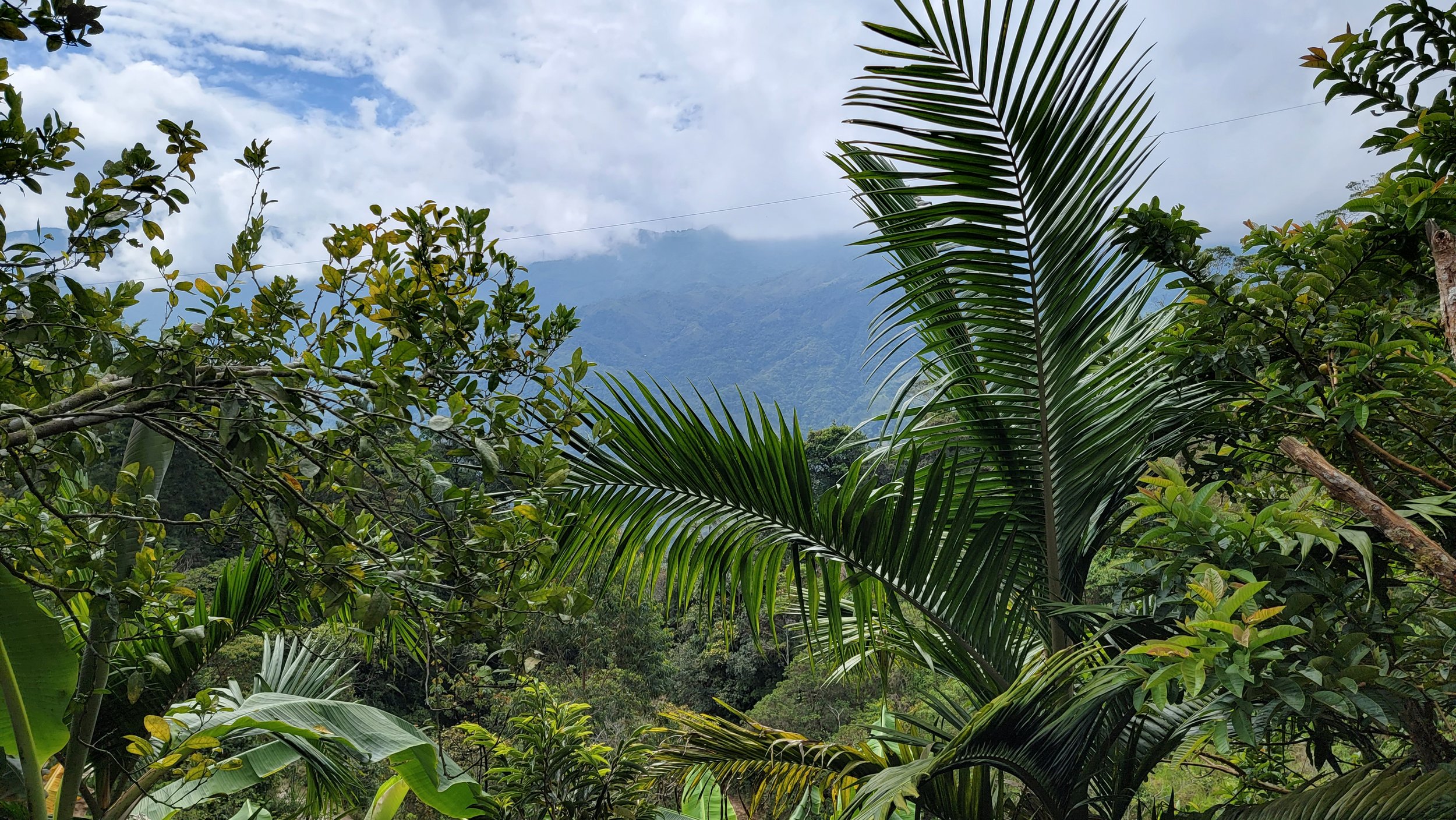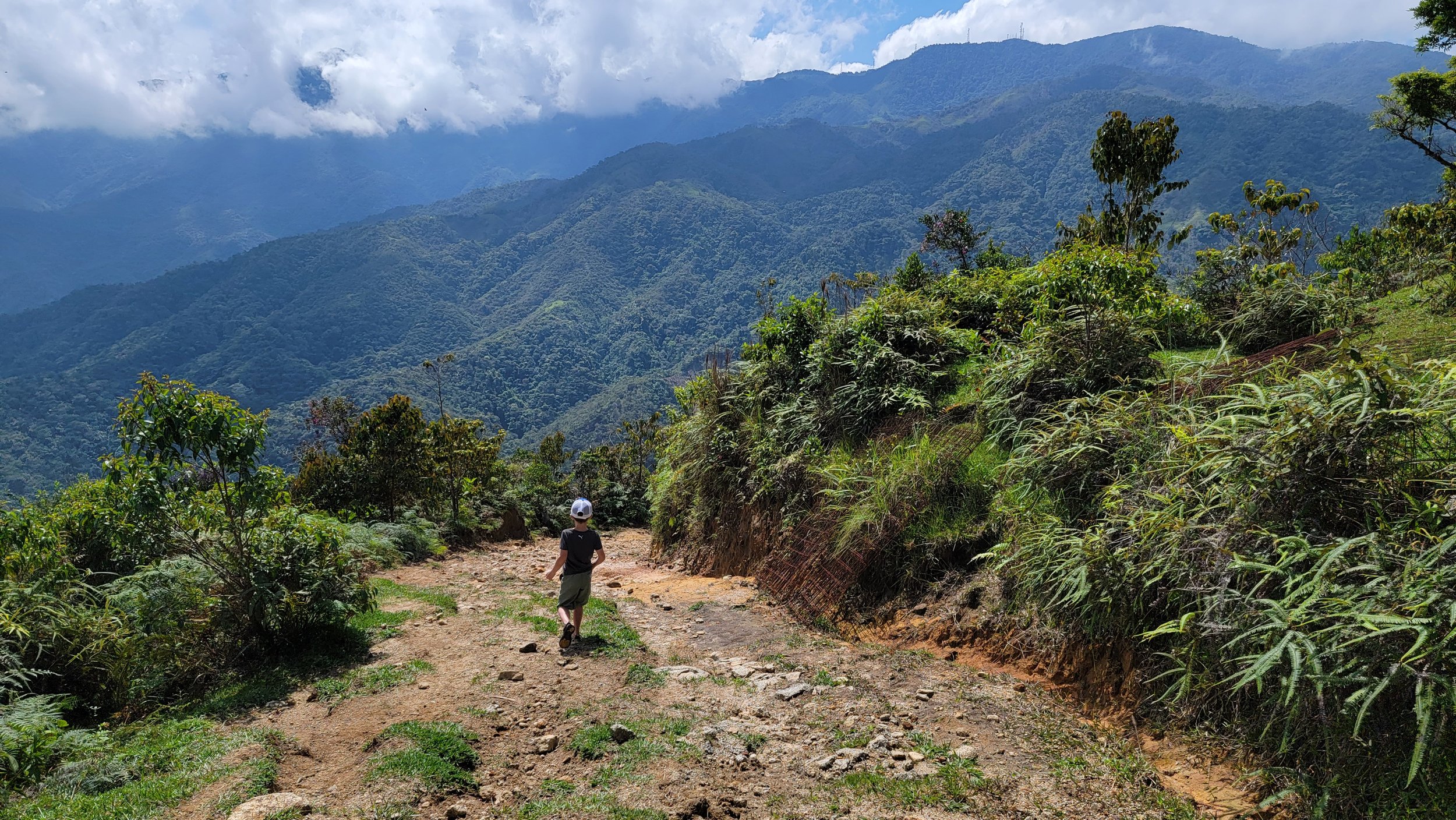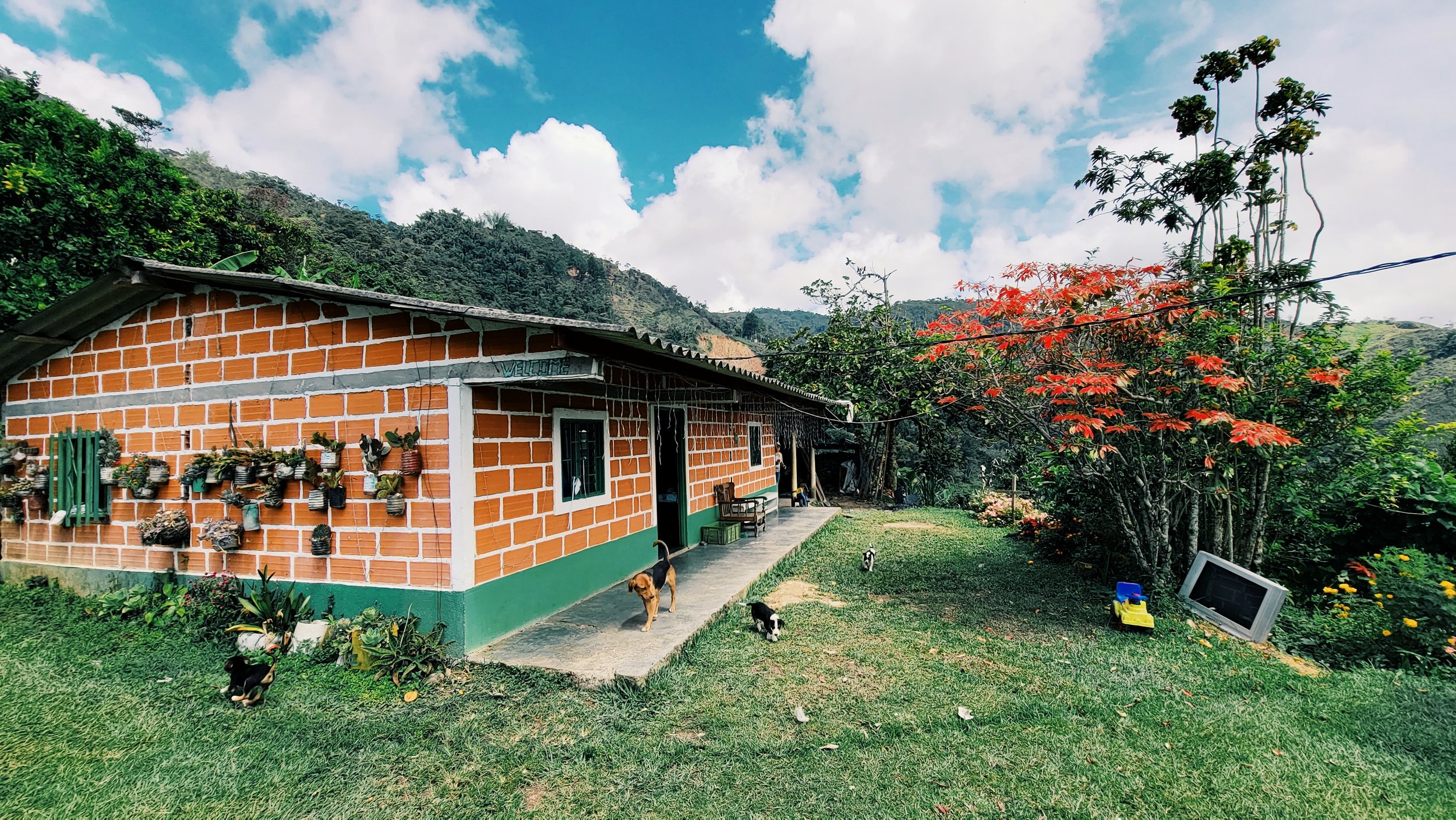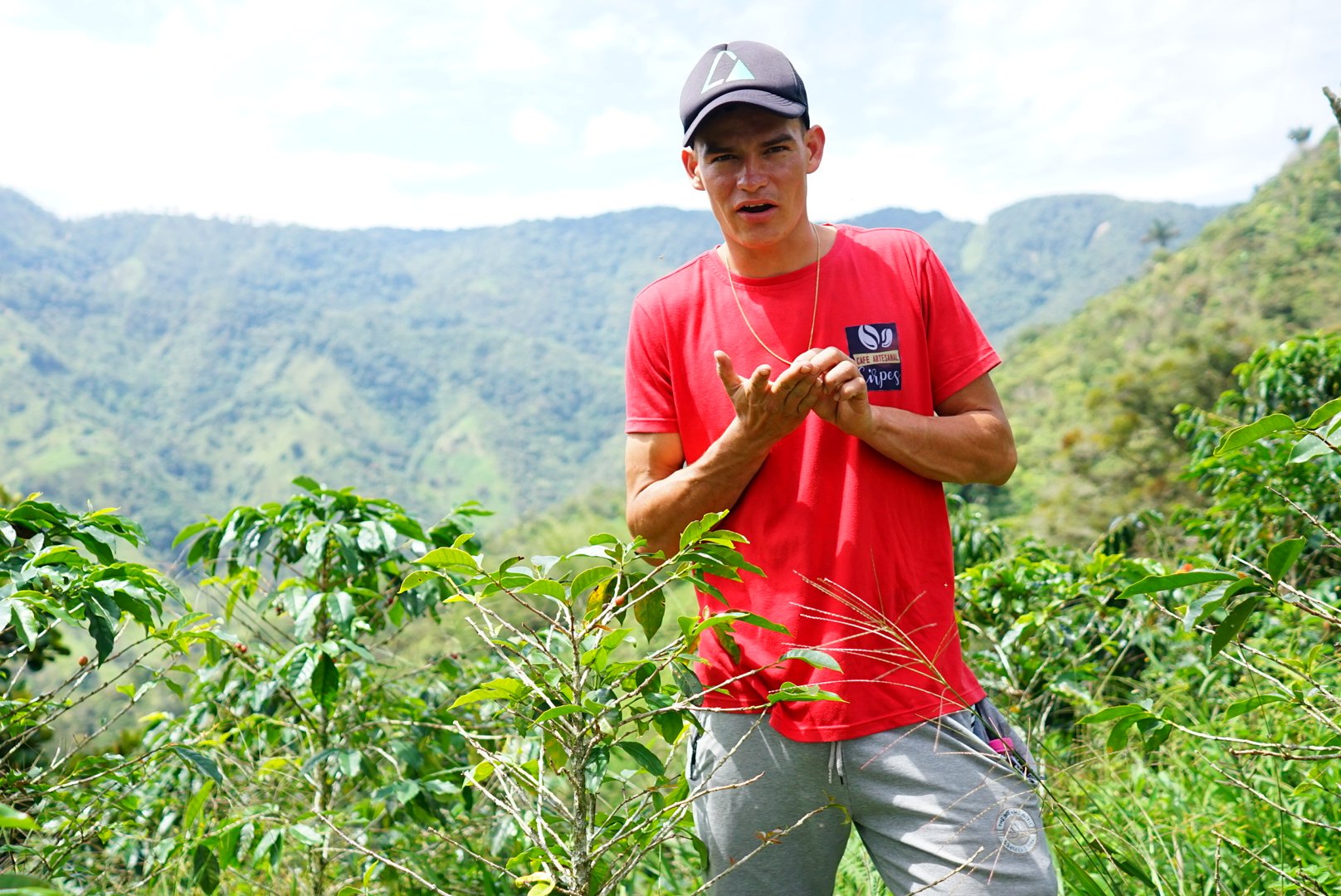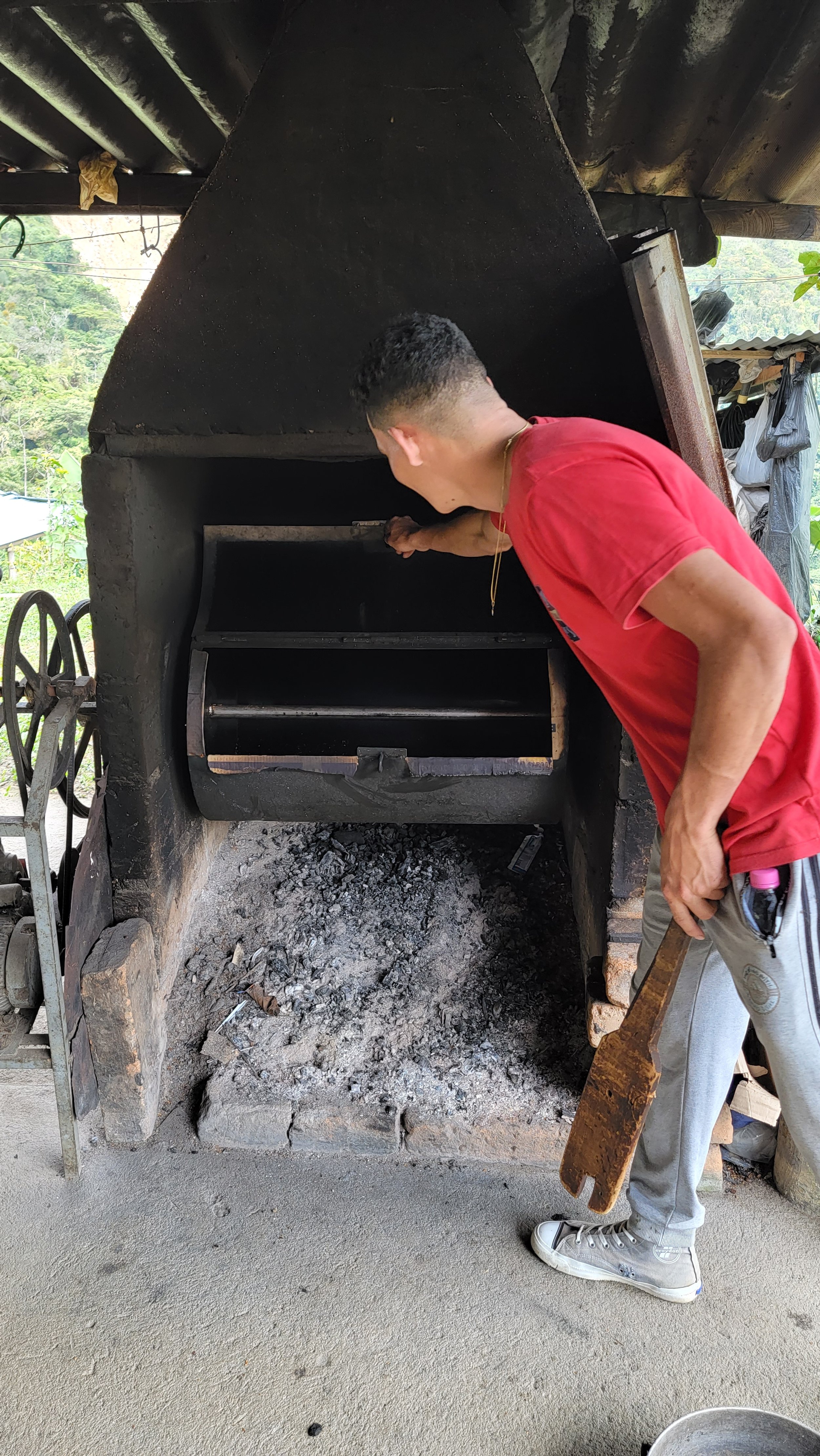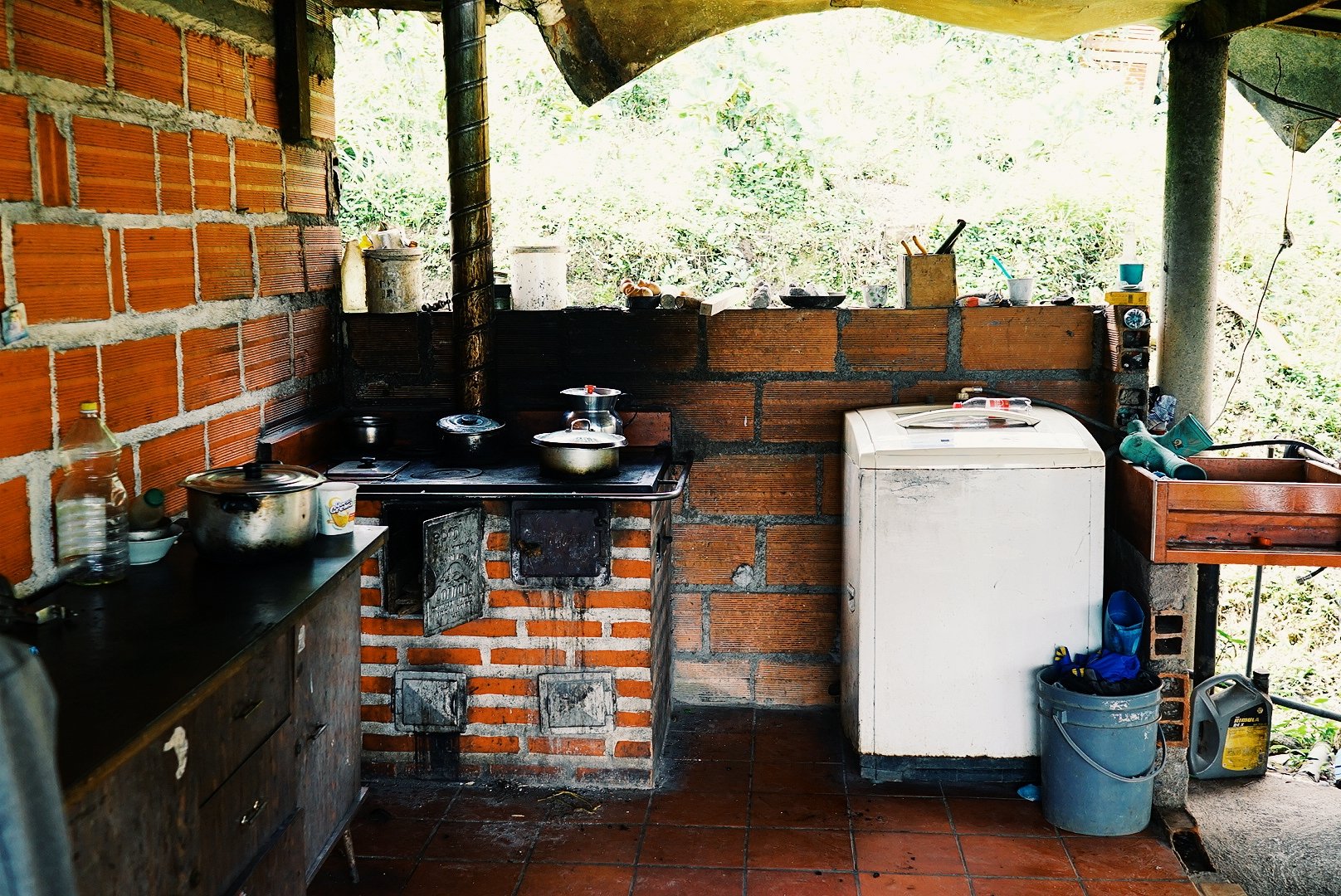An Andean Hike to Finca Amistad
Once again, we loaded into the familiar Renault and our guide pointed the car toward San Rafael from Guatape. The winding road provided sneak peeks between large home gates, and bamboo forests along the road. Eventually, these gaps grew in size and we were able to fully breathe in the magnificence of the Andes Mountains.
The Andes mountains through the jungle.
The main artery of the Andes (which runs North-South across the South American continent) breaks into 3 distinct ranges - or cordilleras), all of which cross the area we are in. To say it is a mountainous place is an understatement.
Parking the car on the narrow shoulder of a mountain road, the kids unfolded out of the back seat, making odd stretching sounds, flailing their arms into the heat of the day.
Ahead lies a long, steep hike down to Finca Amistad - a great example of traditional coffee farming in Colombia. As no cars can make it down the very steep and rocky sendero, any coffee brought out must be strapped to horses to make the climb out of the farm.
Wilder leads us down the mountain, into the valley.
This particular farm is nestled deep in the Cirpes Valley (pronounced ser-Pez), a unique ecological area where a rare Colombian Cypress tree grows.
As the trail conditions worsened, and the tropical heat increased, I began to wonder if bringing the kids along on this trek was a smart dad move - especially since Kristin wasn’t feeling well and stayed behind in Guatape. However, Amanda - our guide - and her novio were amazing with the kids and a huge help.
We crossed streams and countless trails of leaf cutter ants - the thin green (or sometimes pink, as they carried off parts of local flowers) lines bisecting our trail. We were always sure to respect these hard workers, stepping across these miniature highways.
Entering through a barbed wire, impromptu fence, we were soon attacked by a pack of contrastingly clean puppies. They showed their excitement with the band of foreigners with nips and barks, leading us the rest of the way to the finca.
The family’s home at Finca Amistad.
After exchanging hellos, we were whisked off to the coffee plants, for a brief primer on the coffee, and farm. The family discussed the violence that ravaged this area - with many locals dying in the fighting. Ninety-nine percent of locals fled these very mountains (and their livelihoods) trading it all for a marginal increase in security of the urban centers.
Only recently have people been able to bring their farms back to a pre-violence state. This is source of pride for the Jimenez family.
The kids broke the heavy nature of our history lesson with shrieks of joy - they had found a stick bug.
We ventured back to the yard surrounding the home, and toured their processing facilities - from the depulping facility to the trilladora and even the packaging (which consisted of the brilliant use of a flat iron to seal the bags).
Albeiro, back from a long day on the farm.
The real beauty of this farm is in their unique roasting process. Unlike other farms we have seen, they also roast their own coffee. However, they use a homemade wood-fired roaster. Placing the green coffee in the steel drum, a motor whirs to life with a fixed speed. This will roast the coffee with a very unique, smoky, woody profile. Tasting the coffee confirmed this - a great cup of coffee with very distinct smokiness.
Albeiro’s son shows us the wood-fired roaster.
While learning about the roaster, the family’s matriarch prepared a soup in seasoned pots on a wood-fired kitchen stove. Checking on them frequently allowed the wonderful scents to waft across our conversations.
The brick wood-fired stove and oven in the outdoor cocina.
The kids scrambled around the yard with bare feet, making friends and trying new fruits. The family plucked fresh Zapotes from their beloved tree, sharing the stringy, mango-like fruits with us. Arlow was a fan. Wilder, not so much.
After relaxing and chatting with the family, I decided to once again purchase coffee direct from Sr. Jimenez. I asked for 18 kilos - enough for two batches. After some math between us (we needed to account for the weight of the parchment pre-processing), we agreed on a price. He weighed it, and he set to work preparing the coffee.
Counting out the pesos, Albeiro and I shook hands. The coffee would be ready in a few hours when they will strap it to a hopefully willing animal to carry it back up the very trail we descended. This coffee will soon be on the shelves in East Tennessee, carrying with it, this same story.
After shedding some layers of clothes, we prepared for the long journey uphill back to the car.
The distinct and intimidating rumbles of distant thunder gave us motivation to hustle. I am reminded that each morning, at 5:00AM, the children of these fincas strap backpacks on their backs, and make this journey in the dark. And often in the rain. And, often crossing swollen creeks. All in school uniforms.
The trek didn’t seem so hard.
Once again, a HUGE thanks to our dear friends Amanda (Panda) and John Michael of Abakua Tours! We started as customers, and parted as friends. We look forward to seeing them again soon. And thank you to Sr. Albeiro and his family for their time. And last, to the horse that brought our coffee up the hill.

